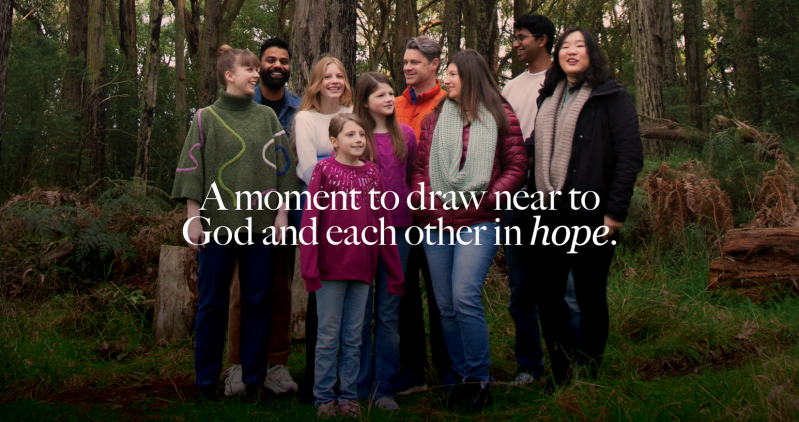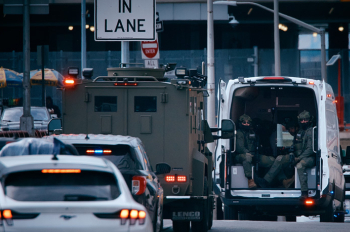
A newly published “Global Hope Report 2024” by international Christian aid agency Tearfund Australia reveals that despite a wide range of issues raising people's anxieties, Australian Christians are overall more hopeful for the future of their country and the wider world compared to their peers living in the country.
The report shows national research findings by NCLS Research concerning the views of Australians about the prevalent global challenges in the world, reactions to climate change and also perceptions about themselves, local communities, Australia as a country and the wider world.
Research came from the 2024 Australian Community Survey (ACS) by NCLS Research conducted in April this year, 2024, which examined spirituality.
“This is an invitation for Christians to come together and embody God-shaped hope in a world that is suffering,” stated the report. “It is too easy in today’s world to find stories that rob us of hope.”
Global challenges most worrying Australians generally, according to the report, are war and conflict (63%), the economy (47%), poverty (39%) and climate change (37%).
The report predicted 600 million people living globally in extreme poverty by 2030, whilst wealth accumulates for very few people.
“We face multiple, interconnected challenges – growing inequality, more unpredictable and extreme weather, and the rising cost of living that squeezes us all, but affects people living in poverty the most,” added the report.
Climate change was singled out in the report as a particular concern for Australians, with at least two out of three in the 18 to 34 age group, “at least moderately concerned.” The total amounted to 77 percent of respondents. Australians with religious and spiritual, or spiritual but not religious, are also moderately concerned (70% and 74%) across the age groups.
“Australians affiliated with non-Christian religions are most likely to be concerned about climate change when thinking about the future (86% compared with 66% overall),” added the report. “Australians who pray or meditate at least once a week are more likely than average to be at least moderately concerned about climate change when thinking about the future (80% compared with 66% overall).”
The report also predicted the possibility that billions of people currently live on land that could become uninhabitable by the end of this century.
“The majority of people are concerned about the Climate Crisis, with younger Australians being most likely to be concerned about it when they consider the future. Religious beliefs and practices are linked with higher concern about the Climate Crisis.”
However, “the Bible reminds us that we can join in God’s story for a more hopeful future,” reminded the report. “We have the choice either to live in ways that contribute to escalating catastrophes and injustice or in ways that move us towards greater peace and flourishing for our communities, for Australia and for the rest of Creation.”
The report’s authors suggest that collaboration and working together would be a key driver to overcome these challenges, not just for Australians but the wider world.
“By coming closer to God and to each other, hope grows and transformation becomes possible,” the report added.
Only half of Australians are hopeful for their future, with one-in-three expressing hope for their local community and the same figure for the future of the country. Another survey slant showed just a quarter of respondents feeling hopeful about the world’s future.
The data for Australians with a faith in God are similar. Two out of three Australians believing in a personal God are not hopeful about the world’s future and neither are 3 out of 4 Australians believing in “some sort of spirit or life force.” Meanwhile less than one in five Australians with no faith are hopeful.
However, this breaks down to 27.8% hopeful about the future of the world for those believing in a personal God compared to 16.2% of atheists.
Some 42% of those believing in a personal God were hopeful for the future of Australia. This compares to 29 percent for those with no faith. Hope for local communities were 45% for believers under the above definition and 28% for those with no faith.
“People with religious beliefs – whether Christian or a different faith – are the most hopeful about the future of the world, Australia and their local community,” the report pointed out.
“Australians who identify as ‘neither religious nor spiritual’ are the least hopeful about the future of the world. In fact, only 16% are hopeful, compared with 37% of those who identify as both ‘religious and spiritual’.”
The report's authors commented that the research showed what helps individuals when hope is lowest, namely a personal relationship with God and a regular prayer life.
“In the moments when we are daunted by the darkness, God is present. In this, our model is Jesus, who knelt in the garden and wept and prayed. He sent the Holy Spirit to live with us, to comfort us and help us live out peace (John 14:15–31).
“Deepening our relationship with God through the practices of personal discipleship, including prayer, strengthens the foundation of our faith and steadies the hope within us in the face of stories that might distract, divide or disconnect us.”





